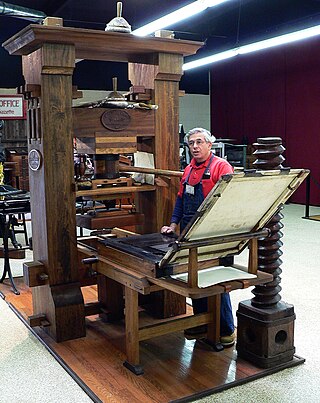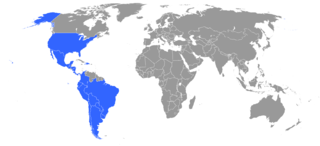
A copyright is a type of intellectual property that gives its owner the exclusive legal right to copy, distribute, adapt, display, and perform a creative work, usually for a limited time. The creative work may be in a literary, artistic, educational, or musical form. Copyright is intended to protect the original expression of an idea in the form of a creative work, but not the idea itself. A copyright is subject to limitations based on public interest considerations, such as the fair use doctrine in the United States and fair dealings doctrine in the United Kingdom.

Warez is a common computing and broader cultural term referring to pirated software that is distributed via the Internet. Warez is used most commonly as a noun, a plural form of ware, and is intended to be pronounced like the word wares. The circumvention of copy protection (cracking) is an essential step in generating warez, and based on this common mechanism, the software-focused definition has been extended to include other copyright-protected materials, including movies and games. The global array of warez groups has been referred to as "The Scene", deriving from its earlier description as "the warez scene". Distribution and trade of copyrighted works without payment of fees or royalties generally violates national and international copyright laws and agreements. The term warez covers supported as well as unsupported (abandonware) items, and legal prohibitions governing creation and distribution of warez cover both profit-driven and "enthusiast" generators and distributors of such items.

To publish is to make content available to the general public. While specific use of the term may vary among countries, it is usually applied to text, images, or other audio-visual content, including paper. Publication means the act of publishing, and also any copies issued for public distribution.
Operation Buccaneer is an "ongoing international copyright piracy investigation and prosecution" undertaken by the United States federal government. It was part of a crackdown divided into three parts: Operation Bandwidth, Operation Buccaneer and Digital Piratez.

The Islamic Republic of Iran Broadcasting or Seda va Sima for short, formerly called National Iranian Radio and Television until the Iranian revolution of 1979, is an Iranian state-controlled media corporation that holds a monopoly of domestic radio and television services in Iran. It is also among the largest media organizations in Asia and the Pacific region and a regular member of the Asia-Pacific Broadcasting Union. Its head is appointed directly by the Supreme Leader, Ayatollah Ali Khamenei.

The Buenos Aires Convention is an international copyright treaty signed in Buenos Aires, Argentina, on 11 August 1910, providing mutual recognition of copyrights where the work carries a notice containing a statement of reservation of rights (Art. 3). This was commonly done with the phrase "All rights reserved" next to the copyright notice. This implementation varied as US law only required the author and year of publishing. Copyright protection under the convention is granted for the shorter of the terms of the protecting country and the source country of the work. The rather vague nature of the requirement for a statement of reservation led to the development of longer and more legalistic wordings, which have persisted despite the developments in international copyright law.
A telesync (TS) is a bootleg recording of a film recorded in a movie theater, often filmed using a professional camera on a tripod in the projection booth. The audio of a TS is captured with a direct connection to the sound source. If a direct connection from the sound source is not possible, sometimes the bootlegger will tape or conceal wireless microphones close to the speakers, as it is better than a mic on the camera. A TS can be considered a higher quality type of cam, that has the potential of better-quality audio and video.
A cam is a bootleg recording of a film. Generally unlike the more common DVD rip or screener recording methods which involve the duplication of officially distributed media, cam versions are original clandestine recordings made in movie theaters.
The copyright symbol, or copyright sign, ©, is the symbol used in copyright notices for works other than sound recordings. The use of the symbol is described by the Universal Copyright Convention. The symbol is widely recognized but, under the Berne Convention, is no longer required in most nations to assert a new copyright.

Pari is a 1995 Iranian motion picture directed by Dariush Mehrjui. The film is an unauthorized "loose" adaptation of J. D. Salinger's 1961 book Franny and Zooey. Though the film could be distributed legally in Iran since the country has no official copyright relations with the United States, Salinger had his lawyers block a planned screening of the film at Lincoln Center in 1998. Mehrjui called Salinger's action "bewildering," explaining that he saw his film as "a kind of cultural exchange."
Bilateral copyright agreements of the United States are agreements between the United States and another country which allow U.S. authors to claim copyright protection in the other country and authors from that country to claim protection under United States copyright law.
Operation Site Down is the umbrella name for a law enforcement initiative conducted by the United States' FBI and law enforcement agents from ten other countries which resulted in a raid on targets on June 29, 2005. Three separate undercover investigations were involved, based in Chicago, Charlotte and San Jose. The raid consisted of approximately 70 searches in the U.S. and approximately 20 others in ten other countries in an effort to disrupt and dismantle many of the leading Warez groups which distribute and trade in copyrighted software, movies, music and games on the Internet.
Since 2008 copyright in Afghanistan has been governed by the law on the support the right of authors, composers, artists and researchers.

DrinkOrDie (DoD) was one of the most prestigious underground software piracy group and warez trading network during the 1990s. On 11 December 2001 a major law enforcement raid - known as Operation Buccaneer - forced it to close under criminal charges of infringement. DoD, as a rule, received no financial profit for their activities. The DoD network - which primarily consisted of university undergraduates - was also supported by software company employees, who leaked copies of software and other digital media. DoD was also actively involved in illicit file-trading with other networks.
The copyright law of the United States grants monopoly protection for "original works of authorship". With the stated purpose to promote art and culture, copyright law assigns a set of exclusive rights to authors: to make and sell copies of their works, to create derivative works, and to perform or display their works publicly. These exclusive rights are subject to a time and generally expire 70 years after the author's death or 95 years after publication. In the United States, works published before January 1, 1929, are in the public domain.

Copyright infringement is the use of works protected by copyright without permission for a usage where such permission is required, thereby infringing certain exclusive rights granted to the copyright holder, such as the right to reproduce, distribute, display or perform the protected work, or to produce derivative works. The copyright holder is usually the work's creator, or a publisher or other business to whom copyright has been assigned. Copyright holders routinely invoke legal and technological measures to prevent and penalize copyright infringement.

Iran is a member of the WIPO since 2001 and has acceded to several WIPO intellectual property treaties. Iran joined the Convention for the Protection of Industrial Property in 1959. In December 2003 Iran became a party to the Madrid Agreement and the Madrid Protocol for the International Registration of Marks. In 2005 Iran joined the Lisbon Agreement for the Protection of Appellations of Origin and their International Registration, which ensures the protection of geographical names associated with products. As at February 2008 Iran had yet to accede to The Hague Agreement for the Protection of Industrial Designs.

Works are in the public domain if they are not covered by the intellectual property right known as copyright, or if the intellectual property rights to the works have expired. Works automatically enter the public domain when their copyright has expired. The United States Copyright Office is a federal agency tasked with maintaining copyright records.

Iran officially submitted an application to join the World Trade Organization (WTO) on 19 July 1996. From July 1996 to May 2001, Iran’s application had not been considered, mainly as a result of US objections and the US veto power in the WTO Council. From May 2001 Iran’s application for WTO membership has been brought up 22 times. At the 22nd time, on 26 May 2005, Iran’s application for WTO membership was approved unanimously by the organization’s members. Thus the process of Iran’s membership in the WTO started. Once Iran’s application was accepted and examined by WTO General Council, Iran became WTO observer member and started the process of full membership in the organization. In November 2009 Iran submitted the Foreign Trade Regime Memorandum as the process of accession entered a new phase.

Iran and Yemen have had cordial, if tepid, relations since the Iranian Revolution in 1979. Ties between the Saudi-backed Yemeni government in Aden, however, have been damaged in recent years by Iran's support for the rival Yemeni government in Sanaa linked to the Houthi movement. Since 2019, Iran has recognized the Supreme Political Council as the sole legitimate government of Yemen.












